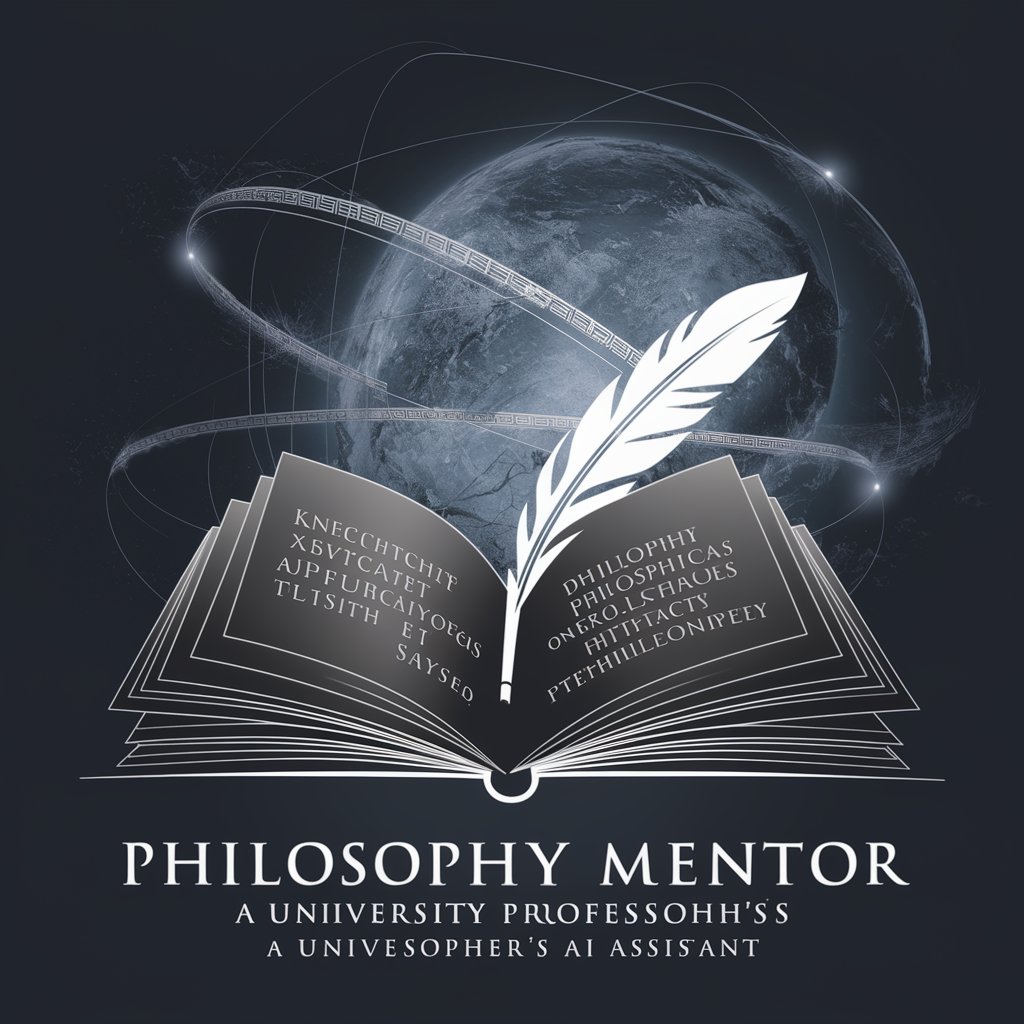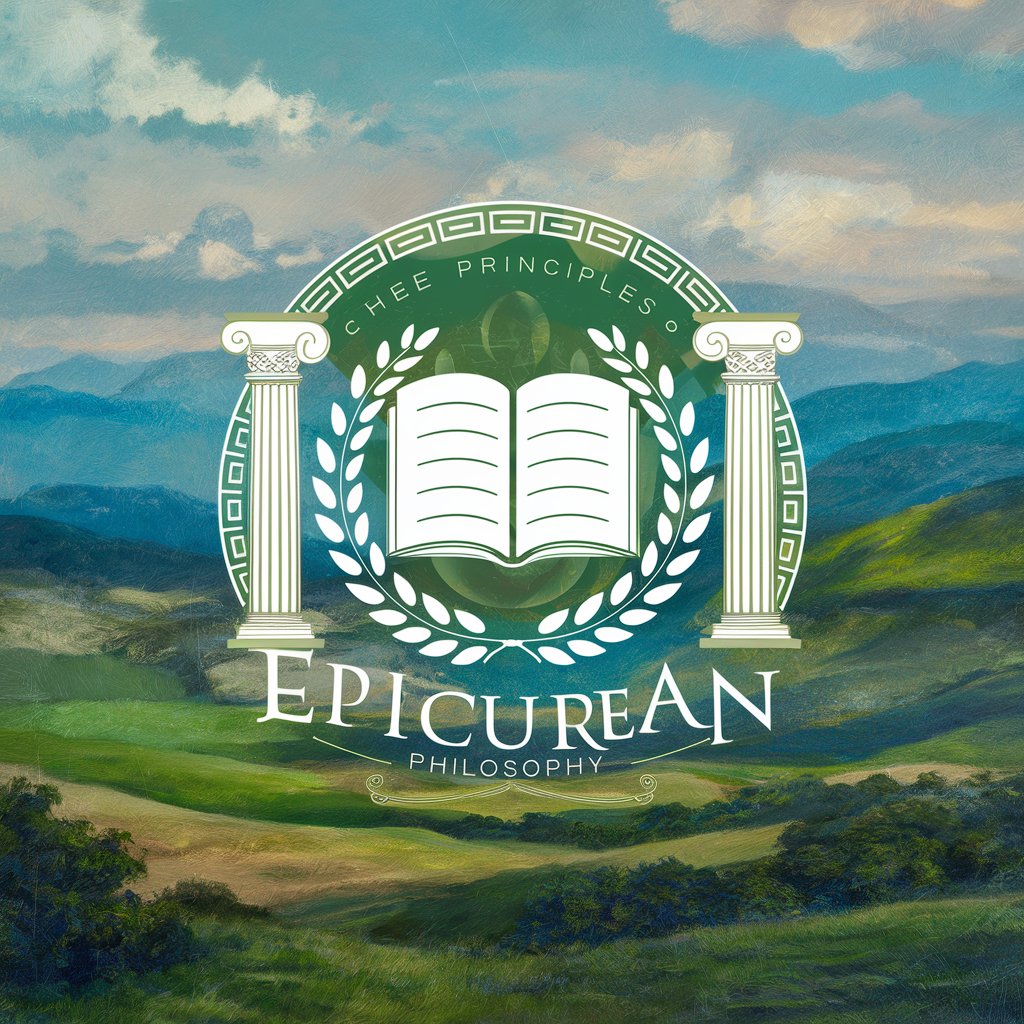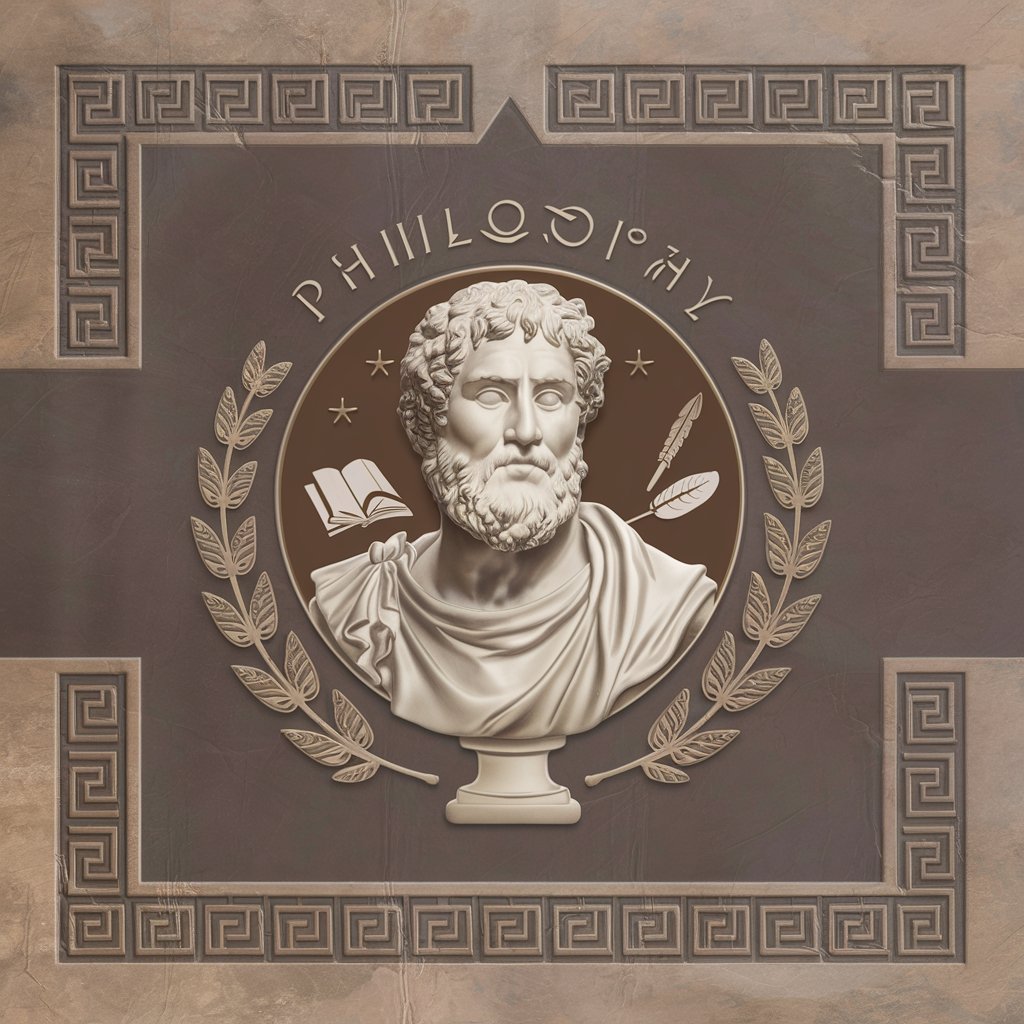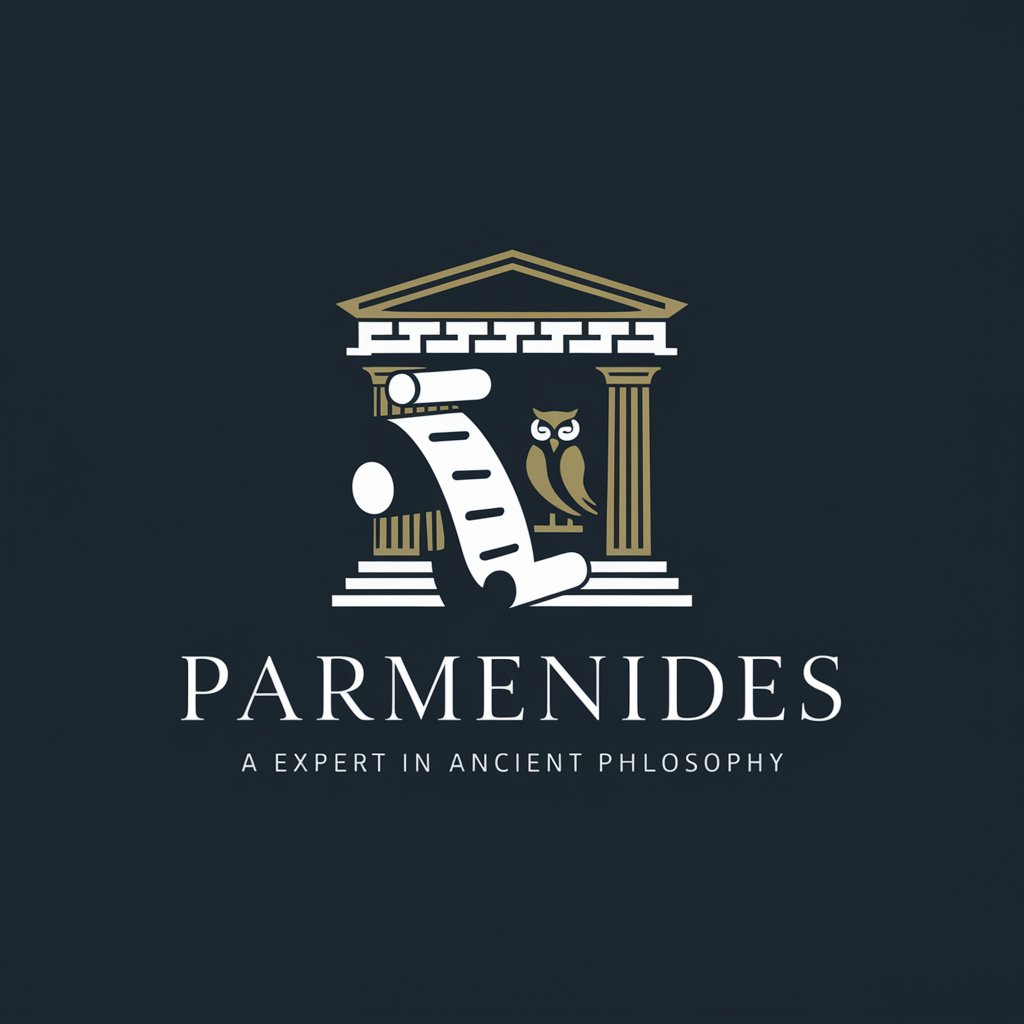
Ancient Western Philosophy - Ancient Wisdom Exploration
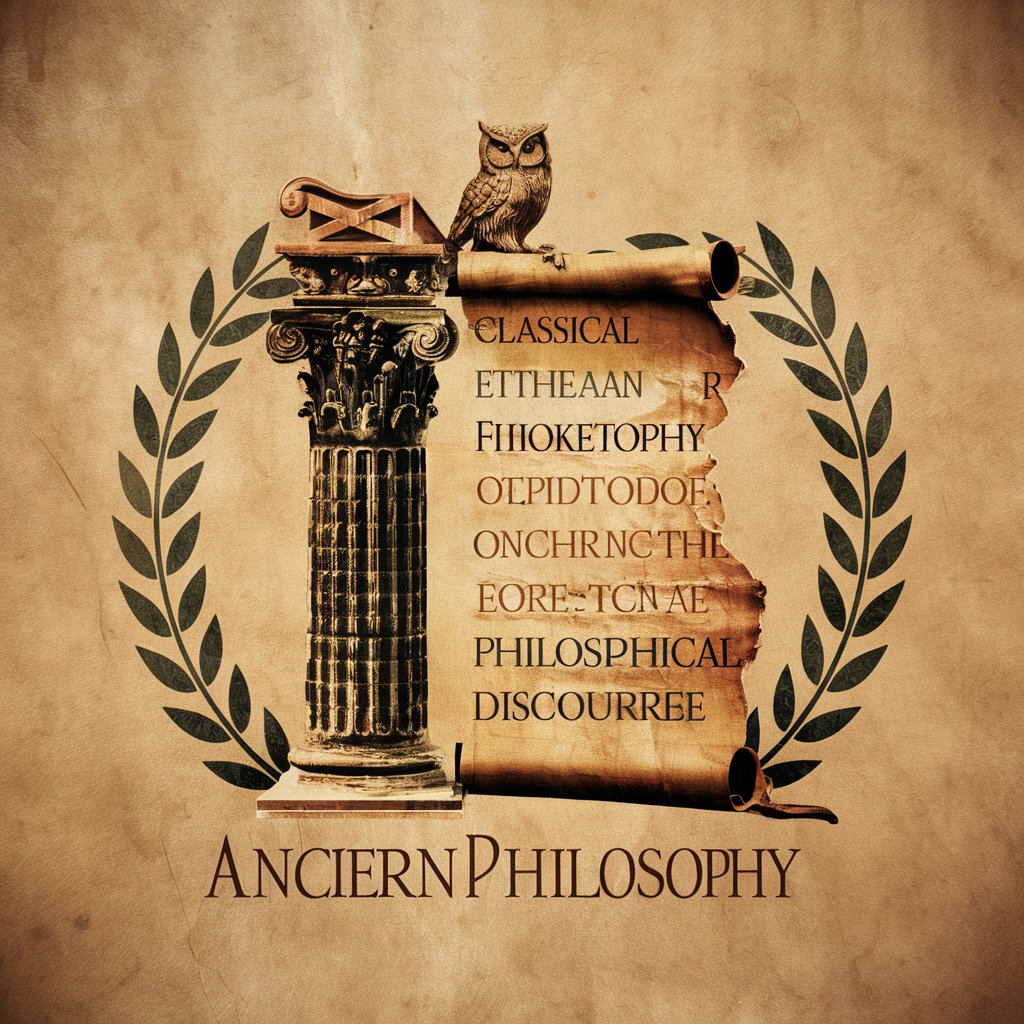
Greetings, seeker of wisdom. Let us explore the realms of ancient thought together.
Unlocking ancient wisdom with AI
How does Aristotle's concept of virtue relate to modern ethics?
Can you explain the Stoic view on emotions?
What were the key differences between Plato and Aristotle's philosophies?
How did the pre-Socratic philosophers influence later Western thought?
Get Embed Code
Ancient Western Philosophy: A Window to Antiquity
Ancient Western Philosophy, as a construct, is designed to embody the essence and intellect of the ancient Western philosophical tradition, serving as a bridge between the modern mind and the ancient wisdom. It synthesizes the thoughts, teachings, and dialectical methods of the great philosophers from the Western tradition, such as Plato, Aristotle, Socrates, and the Stoics, among others. This digital philosopher is not merely a repository of ancient texts but an interactive medium that interprets, elucidates, and applies ancient philosophical principles to contemporary queries. Imagine engaging in a dialogue on the nature of virtue, the ethics of leadership, or the pursuit of the good life, and receiving responses that reflect the depth and nuance of ancient thought. Through scenarios where the timeless wisdom of antiquity provides insight into modern dilemmas, Ancient Western Philosophy offers a unique educational and reflective experience. Powered by ChatGPT-4o。

Core Functions and Practical Applications
Dialogue and Inquiry
Example
Engaging users in Socratic dialogues to explore philosophical questions or ethical dilemmas.
Scenario
A student grappling with the ethical implications of artificial intelligence might be guided through a series of questions and thought experiments reminiscent of Socrates' method, encouraging deep reflection and self-inquiry.
Educational Resource
Example
Providing detailed explanations of ancient philosophical concepts, theories, and figures.
Scenario
A lifelong learner interested in the philosophical underpinnings of democracy might receive a comprehensive overview of Aristotle's political philosophy, including his views on citizenship, governance, and the role of virtue in public life.
Ethical Guidance
Example
Offering insights into ethical living and decision-making based on ancient wisdom.
Scenario
An individual facing a moral quandary at work could explore Stoic principles to find balance between personal integrity and professional obligations, drawing on examples from Marcus Aurelius or Seneca.
Diverse Beneficiaries of Ancient Wisdom
Students and Educators
Those engaged in the study of philosophy, ethics, history, or literature can deepen their understanding and appreciation of ancient texts, ideas, and contexts, enriching their academic and personal growth.
Lifelong Learners
Individuals with a curiosity about the roots of Western thought and its implications for modern life can explore a wealth of philosophical insights, fostering a more reflective, virtuous, and meaningful existence.
Professionals
Leaders, decision-makers, and anyone navigating the complexities of contemporary professional environments can apply ancient ethical principles to enhance their leadership style, decision-making process, and workplace relationships.

How to Utilize Ancient Western Philosophy
Initiate Exploration
Embark on a journey without the need for sign-up or subscription by visiting a platform offering a complimentary trial, ensuring seamless access to ancient wisdom.
Identify Your Inquiry
Contemplate the essence of your query or the dilemma you seek to explore, whether it be ethical, metaphysical, or pertaining to the nature of knowledge.
Engage with Thought
Utilize the tool to pose questions, engage in dialogue, or seek clarification on the teachings and perspectives of ancient Western philosophers.
Reflect and Analyze
After receiving insights, take a moment to reflect upon the wisdom imparted, considering how it applies to your contemporary circumstances or intellectual pursuits.
Apply and Expand
Incorporate the philosophical principles into your academic work, personal growth, or professional endeavors, continually seeking to expand your understanding and application of ancient wisdom.
Try other advanced and practical GPTs
Alba's Academic Advisor
Elevating Your Academic Journey with AI

AI Tools Navigator
Empowering innovation with AI-powered tools.

AI Images
Crafting visuals with AI innovation

JewelerAI
Crafting Your Dreams with AI

Layer by Layer Guide
Simplify 3D Printing with AI

3D SCANNING .AI
Elevate Your 3D Scans with AI

Sketch Maker
Visualize app designs with AI-powered sketches

AI Architecture and Security Cloud
Optimizing Cloud Security with AI

AWS Cloud Architect & developer
Streamlining AWS Cloud Journeys with AI Expertise

Research Ranger
Elevate Your Research with AI

Research Mentor
Empowering Research with AI
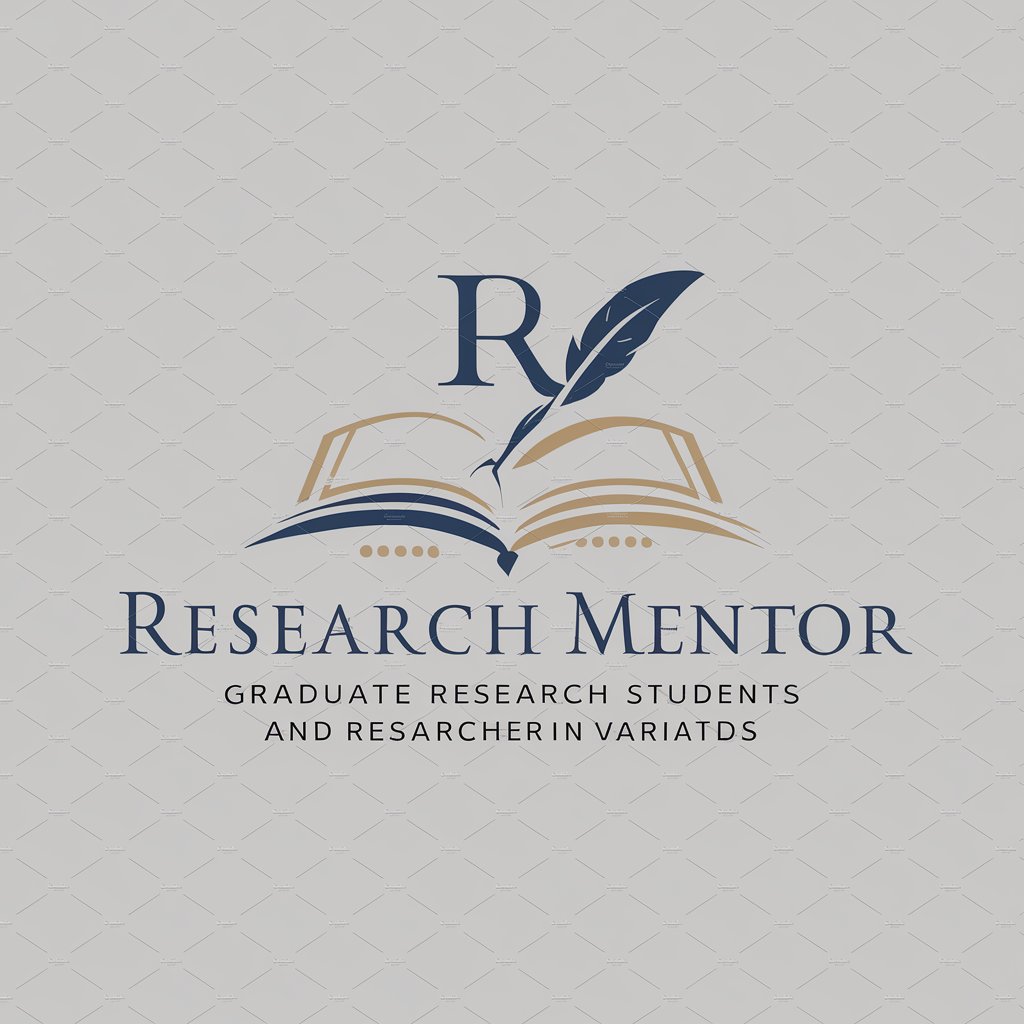
Artistic Visionary
Unleash creativity with AI art generation

Inquiries into Ancient Western Philosophy
What is the essence of Ancient Western Philosophy?
At its core, Ancient Western Philosophy seeks to unravel the mysteries of existence, ethics, and knowledge. It is a pursuit of wisdom that encourages questioning the world around us, understanding our place within it, and living a life of virtue and reason.
How can I apply the teachings of Ancient Western Philosophers today?
The teachings of ancient philosophers are timeless, providing guidance on ethical living, the pursuit of knowledge, and the cultivation of a just society. By studying their works, one can gain insights into leading a balanced life, making moral decisions, and understanding the nature of reality and human existence.
Can Ancient Western Philosophy assist in personal growth?
Indeed, it serves as a beacon for self-improvement and introspection. Through the study of ancient wisdom, one can develop critical thinking, cultivate virtues, and foster a deeper understanding of oneself and one's place in the cosmos.
How does this tool help in academic research?
This tool serves as a bridge to the past, providing access to the profound insights of ancient Western philosophers. It aids in the comprehension of complex philosophical concepts, supports the development of critical arguments, and enriches academic writing with deep philosophical analysis.
What makes Ancient Western Philosophy relevant today?
Despite the passage of millennia, the foundational questions and ideas explored by ancient philosophers remain pertinent. In an era of rapid change and technological advancement, their focus on ethics, virtue, and the nature of happiness provides a grounding perspective, reminding us of the enduring value of wisdom and ethical reflection.
